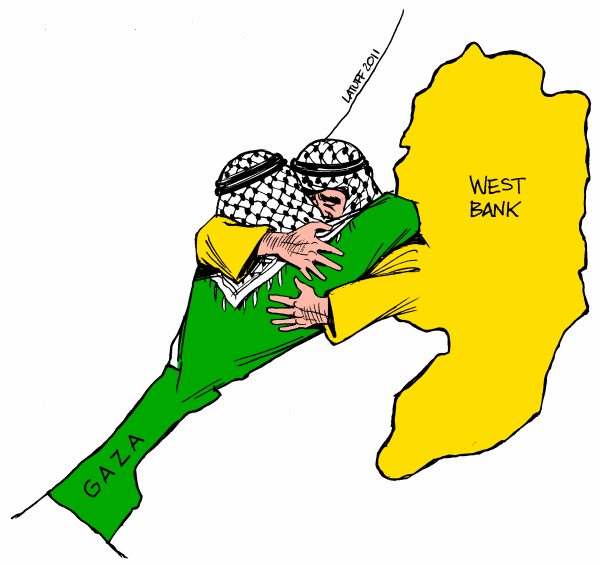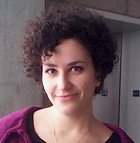EDITOR: World public not fooled by its own corrupt rulers
The BBC survey below has confirmed again that people everywhere are not as stupid as their leaders take them to be. With Israel being one of the most popular countries with warmongering leaders of the west, it is interesting that people when asked, place it where it belongs, with the odious and brutal regimes of North Korea and Iran. A good place for the ‘only democracy in the Middle East’… and they also claim this is an .improvement on last year’!
Israel’s popularity climbs in annual BBC poll, but overall global impression is still negative:
Haaretz
22 out of 27 different countries that took part in the survey leaned toward a negative view of Israel – giving it an overall 49-percent negative rating.
Israel is one of the least popular countries in the world, right down there with Iran, North Korea and Pakistan – this, according to a new BBC World Service Country Rating poll carried out between December 2010 and February this year and released yesterday.
As part of the poll, 28,619 participants from 27 different countries were presented with a list of 16 countries and the EU, and asked the following question about each one: “Please tell me if you think each of the following countries is having a mainly positive or mainly negative influence in the world.” The possible responses were: “mainly positive,” “mainly negative,” “depends” and “neutral.”
The result was that 22 out of 27 countries leaned toward a negative view of Israel – giving it an overall 49 percent negative rating. Only 21 percent rated Israel as having a mainly positive influence. The margin of error per country ranges from 2.8 percent to 4.9 percent.
Overall, the order of popularity of the countries ranked in the poll, which was carried out for the BBC by international polling firm GlobeScan and the Program on International Policy Attitudes at the University of Maryland, was: Germany, the UK, Japan, Canada, France, U.S., Brazil, China, South Africa, India, South Korea, Russia, Israel, Pakistan, North Korea and Iran. The three countries less popular than Israel – Pakistan, North Korea and Iran – had 17% and 16% percent positive ratings, respectively, and more than 55% of those polled expressed a negative attitude toward those states.
Israelis did not take part in the poll as participants. The participant countries with the most uniformly negative opinion of Israel were Egypt (where only a meager 5 percent rated Israel favorably ), Turkey and Indonesia. The countries which had the most positive view of Israel were the U.S. (with 43% expressing a positive view of Israel ), Russia (where the ratio was 35 percent positive to 27 percent negative ), Ghana (32 percent to 27 percent ) and India (21 percent to 18 percent ). China was the only country in which support for Israel grew – by 10% – but it remained at a ratio of 40 percent to 48 percent.
Believe it or not, these results mark a slight improvement for Israel over last year, when it garnered just a 19 percent positive assessment overall. According to the poll, positive views of Israel increased by 2 percent while negative views remained mostly same as in 2010.
Interestingly, this improvement was not reflected in either U.S. or British views of Israel. In the U.S., while positive ratings of Israel remained stable in the poll since 2010 at about 43 percent, many more Americans chose to rate Israel negatively in 2011, marking a 10 percent increase in the past year, from 31 percent to 41 percent. In Britain, the negative rating went from 50 percent to 66 percent.
Negative perceptions of Israel also grew stronger in Canada, Indonesia, Australia, Portugal, Spain and Kenya. The U.S., meanwhile, improved its standing for the fourth year running, but lagged behind Canada, the EU, Japan, France and Brazil. It received negative responses mainly from Muslim states such as Pakistan, Turkey and Egypt. In other changes this year, Brazil made the biggest gains, jumping from 40 percent to 49 percent in terms of being viewed favorably, while South Africa, which hosted the World Cup in 2010, also improved its status, going from a 35 percent to a 42 percent favorable rating.
The BBC poll – Israel as Satan’s bastard child: Haaretz
By Bradley Burston
A BBC World Service-commissioned poll released this week proves, if nothing else, that the nature of the question pollsters ask will determine the answers they receive.
It also suggested, without having to say so explicitly, that Israel is the bastard child of Satan, the troublemaking twin of its arch-nemesis Iran.
The poll, a survey of more than 28,000 people in 27 countries, asked respondents to rate 12 countries – Britain, Canada, China, France, India, Iran, Israel, Japan, North Korea, Russia, the USA, Venezuela, and the European Union – as having a positive or negative influence.
Who, in other words, is a bad influence? Who’s the kid down the block you want your kids to play with, and who’s the one – for whatever reason, behavior, stigma, cooties – you want your precious one to avoid.
Significantly, the poll was taken beginning in November, when the memory of the second Lebanon war, bitter, bloody, and high in civilian casualties, was fresh.
According to the BBC, the survey “gave respondents a list of 12 countries and asked whether they had a ‘mostly positive or mostly negative influence in the world. “The country with the highest number of mostly negative responses overall is Israel (56% negative, 17% positive), followed by Iran (54% negative 18% positive), the United States (51% negative, 30% positive), and North Korea (48% negative, 19% positive).”
Wait, there’s more.
“Israel also stands out for having the largest number of countries (23 of 27) viewing it negatively. Iran is regarded unfavorably in 21 countries, the United States and North Korea in 20.”
One suspects that somewhere in the BBC’s august headquarters in London, the poll elicited more than one thin smile of satisfaction.
After all, this is the same news organization accused by an internal inquiry less than a year ago of painting too rosy a picture of Israel.
No further inquiry needed.
For the record, the kids down the block to encourage your kids to cultivate are Canadian. A total of 54 percent said they viewed Canada positively and 14 percent negatively, followed by Japan and France.
“It appears that people around the world tend to look negatively on countries whose profile is marked by the use or pursuit of military power,” said pollster Steven Kull, who directed the survey. “This includes Israel and the US, who have recently used military force, and North Korea and Iran, who are perceived as trying to develop nuclear weapons.
“Countries that relate to the world primarily through soft power, like Japan, France, and the EU in general, tend to be viewed positively,” he added.
The BBC poll coincides with a Gallup survey of Americans’ attitudes toward Israel and the Palestinians, as detailed by Shmuel Rosner in his current blog. As he notes, the poll shows sympathy for the Palestinian side rebounding, reaching its highest level since 1989.
In Jerusalem, a morning radio news report of the BBC poll noted that “Israel invests only $35 million a year for hazbara [loosely, political public relations], and even that budget was cut recently by 5 percent.
Perhaps more telling was the musical frame for the report – an old song whose lyrics go “The whole world is against us.”
The whole world is against us
It’s a very old tune
Which our forefathers taught us
To croon and also to dance to.
BBC Poll Report: Globescan
Most people believe Israel and Iran have a mainly negative influence in the world with almost as many saying the same about North Korea and the United States, according to a BBC World Service poll of 28,000 people across 27 countries.
People were asked to rate 12 countries—Britain, Canada, China, France, India, Iran, Israel, Japan, North Korea, Russia, the USA, Venezuela, and the European Union—as having a positive or negative influence.
Canada, Japan, the European Union, and France were judged most positively. Britain, China and India received more positive than negative evaluations while Russia was viewed slightly more negatively than positively. Opinions about Venezuela were evenly divided.
(Details of the evaluations of the United States were released separately by the BBC on 23 January).
The BBC has been tracking opinions about countries influence in the world over three years (2005–2007). During that time most ratings have remained relatively stable. There has been improvement in the case of India, a slight decline in views about Britain and a significant fall in positive evaluations of the United States. Russia, China, and France also lost ground over the period, mainly between 2005 and 2006.
Steven Kull, Director of PIPA, commented: “It appears that people around the world tend to look negatively on countries whose profile is marked by the use or pursuit of military power. This includes Israel and the US, who have recently used military force, and North Korea and Iran, who are perceived as trying to develop nuclear weapons.”
“Countries that relate to the world primarily through soft power, like Japan, France, and the EU in general, tend to be viewed positively,” he added.
GlobeScan president Doug Miller said: “India is the only country that has significantly improved its global stature in the past year, and is now even with China. Britain, while slipping a bit since 2005, appears to be avoiding the steep decline that its war partner, the US, is suffering. And it is fascinating that Chavez’s Venezuela seems to be appealing to as many people as it is displeasing.”
The poll was conducted for the BBC World Service by the international polling firm GlobeScan together with the Program on International Policy Attitudes (PIPA) at the University of Maryland. GlobeScan coordinated the fieldwork between November 2006 and January 2007. Each country’s rating is based on half-samples.

Hardliner to head Israel’s National Security Council: Ahram Online
Israeli Prime Minister appoints well-known hardliner to head the Israeli cabinet’s National Security Council
AFP , Wednesday 9 Mar 2011
Israeli Prime Minister Benjamin Netanyahu announced on Wednesday he was appointing Yaakov Amidror, a hawkish former general, to head the National Security Council (NSC).
“Amidror does not hesitate to express his professional opinion. He is extremely knowledgeable and very experienced in the fields of military, security and strategic issues,” a statement from Netanyahu’s bureau said.
The appointment of Amidror as a key player within Netanyahu’s inner circle of advisers is an indicator that it is unlikely the Israeli premier is planning any far-reaching concessions to the Palestinians to reinvigorate the stalled peace talks.
Amidror is a reserve major general who formerly headed the Israel Defence Forces’ research and assessment division and is considered a military hawk.
He opposed Israel’s unilateral withdrawal from the Gaza Strip and has in recent years called for the reoccupation of entire areas of the coastal enclave.
The appointment comes just days after Israeli press reports suggested Netanyahu was planning a new political initiative which would see the establishment of a Palestinian state in temporary borders as a way to restart stalled peace talks.
Direct talks broke down just weeks after they were relaunched on September 2 when Israel refused to renew a partial freeze on settlement construction in the occupied West Bank.
The Palestinians say they will not negotiate while Israel builds on land it wants for a future state. The statement said Amidror will replace outgoing NSC chair Uzi Arad following a handover period. Arad, who announced he was stepping down in February, has said he plans to return to academia.
Israel’s National Security Council, created in 1999, includes 20 advisers from various backgrounds who are charged with drafting reports on potential government security policy but lacks any decision-making power.
World looks at Israel as it looked at Apartheid-era South Africa: Haaretz
The world is not interested in Israel’s housing and bureaucratic problems, or in the achievements of its students in mathematics. The world is looking at how the only democracy in the Middle East conducts itself in the occupied territories.
By Niva Lanir
Whether or not Prime Minister Benjamin Netanyahu uses “a supertanker against the bureaucracy,” as he calls it, to alleviate the housing shortage, a no-fly zone for supertankers already exists. It exists whether his idea crashes in the Knesset debates on housing reforms, or flies high above the railway line that’s supposed to be extended to Irbid in Jordan – in the East, where there are no procedures or bureaucracy.
Here is its description, from an article in these pages earlier this (“Gilad Farm has been sacrificed,” Karni Eldad, March 6 ): “At age 15, they expelled Elisaf Orbach from his home in Gush Katif in the Gaza Strip. He was paid a small amount of compensation and went to Samaria, to build a small, 90-square-meter house to meet his needs until he gets married and has children.” Despite the sad continuation – “With his hands bound, on the way to the police van, Orbach heard a tractor destroying his house, five years after his house in the Gaza Strip had been leveled” – I clicked “Like.”
The concepts and the division of labor did that to me: expulsion and settling. A small house and a comfortable future, and even a twist in the plot: The forces of evil (police, army, Netanyahu and Defense Minister Ehud Barak ) gang up on Elisaf and his friends and destroy all that good. And the Palestinians? In this story there are no Palestinians. Go see another movie.
Stealing land and illegal construction, evacuating a few buildings and rebuilding them, the state’s report to the High Court of Justice that by the end of the year it would evacuate all outposts built on private Palestinian land – all this is not new. These events repeat themselves like the periodic table. And yet, who would have believed that Netanyahu would get stuck in his second term in the construction business, of all things: freezing construction in the territories, the real-estate bubble, the housing shortage and the sky-rocketing prices. And who would have believed that the housing shortage, of all things, would threaten his coalition?
A few days ago he was still acknowledging that the U.S. veto at the United Nations showed that Israel’s status was in trouble. So to reduce political pressure, he sent up a trial balloon by talking to the media about a second Bar-Ilan speech on the peace process. The trial had not yet begun, Shas was already threatening to join in a no-confidence motion, and along came another trial balloon: the National Housing Commissions. Give that man a supertanker and he’ll leap the bureaucratic hurdles.
If the Hebrew children’s book “The Story of Five Balloons” had been written about Benjamin, the number of his balloons and their colors would have doubled, if not tripled, over the years. And that’s how many would have burst. Netanyahu, to his credit or discredit, is still able to create news from a non-item and extricate himself from crises. But another day is waiting. The sun will rise from the region where supertankers do not fly – the territories. The occupation.
On the day this week when the BBC released a survey ranking Israel at the bottom of a list of countries by popularity, Britain announced that it had upgraded the Palestinian delegation’s status in London. With this came, apparently coincidently, interviews with our ambassador to Britain, Ron Prosor, who is on his way to the United Nations. “After the fall of apartheid and the the Communist bloc in Europe,” he told radio and television journalist Yaron Dekel, “Israel is meeting the need of the British, the Spanish and the Scandinavians to be against.”
Here’s the problem: The world is not interested in Israel’s housing and bureaucratic problems, or in the achievements of its students in mathematics. The world is looking at how the only democracy in the Middle East conducts itself in the occupied territories. It’s looking at events in Bil’in and Sheikh Jarrah, at the olive trees that are uprooted, and at the checkpoints. It’s looking at the settlers who are shooting and setting fires, and at their leaders, MK Michael Ben-Ari, Itamar Ben-Gvir and Baruch Marzel, bullying their way through Jaffa and Umm al-Fahm.
The world is looking at Israel as it looked at South Africa during apartheid. And the world that doesn’t know what Bar-Ilan 2 is will eventually find out. That’s not unpleasant, it’s terrible. Continue reading March 9, 2011

